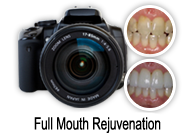Relaxation Sedation Dentistry in Springfield MA
What is Relaxation Sedation Dentistry and Why Should I Consider it?
Many people get anxious when they visit the dentist. They possibly associate the dentist with a childhood trauma or a previous painful dental treatment. It is for this reason that Dr. David Peck uses relaxation as one of the means of sedating his patients in Springfield, Massachusetts in order to minimize their discomfort and perform procedures without pain or other physical difficulties. Patients who benefit the most from relaxation as a means of sedation are those that experience dental anxiety during dental procedures. Those that have dental phobias that may manifest themselves during procedures such as the fear of needles, drilling sounds, or injection shots would also benefit from relaxation. In addition to this, patients also need to consider relaxation when they have overly sensitive teeth, difficulty getting numb when using conventional anesthesia, complex dental issues, or if they have difficulty limiting their movements during a procedure.
Relaxation has been known to relax the patient so completely that it has been considered to be very ideal for using procedures that require extensive dental work. Some procedures that may require relaxation include the installation of porcelain veneers, dental crowns, or laser dentistry. Because of relaxation techniques, some procedures requiring multiple visits can be completed in a single session, eliminating the need for the patient to come back for additional appointments.
While relaxation is an effective way of managing patient anxiety prior to the procedure, it is also important that the patient make the dentist aware of any other medications that they are currently taking that may affect the relaxation medications that will be administered.
Because there are different ways to achieve relaxation during a dental procedure, such as the administration of oral medications or the use of nitrous oxide, patients need to consult with the dentist to be able to identify which method would work best for them in achieving a virtually painless and anxiety-free state prior to any procedure. Patients will have unique requirement and the dentist will be able to choose an option that best fits their needs.
How Does Nitrous Oxide Work?
Nitrous oxide is a longstanding, proven form of light sedation. It's been used in dental offices around the world for decades. Called inhalation sedation, also known as "laughing gas," nitrous oxide is breathed during your dental procedure with a mixture of oxygen. Before your procedure begins, the dentist or assistant will place a small nasal hood over your nose. The machine is activated and adjusted to the right combination of N2O to O2. You simply breathe normally, and soon feel the effects of the mild sedative.
As you continue to breathe in nitrous oxide, the GABAA receptors in your brain inhibit the uptake of certain neurotransmitters; those that instigate anxiety. Additionally, it stimulates the release of norepinephrine, which has an analgesic effect throughout the body. In these two actions, nitrous oxide both reduces anxiety and increases your pain threshold. During your treatment, you'll be awake and alert but will feel less discomfort and may have a euphoric or "giddy" sensation.
How Does Oral Conscious Sedation Work?
As an alternative to nitrous oxide sedation, you may choose to receive oral conscious sedation. In this situation, you may receive a prescription medication to take before you leave for your appointment. We may "top off" your sedative when you arrive, depending on your particular situation. Oral conscious sedation may include one of several prescription medications, such as Valium or Halcion, which slow down your central nervous system to induce a state of calm relaxation. If you receive oral conscious sedation, you may feel drowsy and may even dose off during your procedure. A side effect of these types of medication is that you most likely will not remember your dental visit.
Can I Drive if I Get Dental Sedation?
If you need to drive yourself to and from your appointment, you may receive nitrous oxide without impairment to your safety. This is because nitrous oxide is inhaled rather than ingested. As such, its effects are quickly reversed so you can go about your normal activities after leaving the office. If you want to receive oral conscious sedation for your dental treatment, it will be necessary for you to arrange to have someone accompany you to your appointment who can drive you home. It is wise to take the rest of the day off after receiving oral conscious sedation.
Can Sedation Dentistry Cure My Dental Anxiety?
Sedation dentistry can be significantly beneficial for helping you overcome your fear of seeing the dentist. There are several factors that are involved in dental anxiety. We can discuss what you feel is behind your fears and work with you to create new experiences. For example, dental anxiety is often related to a bad dental visit early in life. Knowing this, our team can work slowly, explain each step of your treatment process, answer all of your questions, and also pause if needed to allow room for relaxation. The use of sedation is one extra step that, for many, provides the sense of calm and safety that paves the way toward greater confidence related to dental visits.
Talk to our team if you feel nervous about seeing the dentist. We're here to help!




